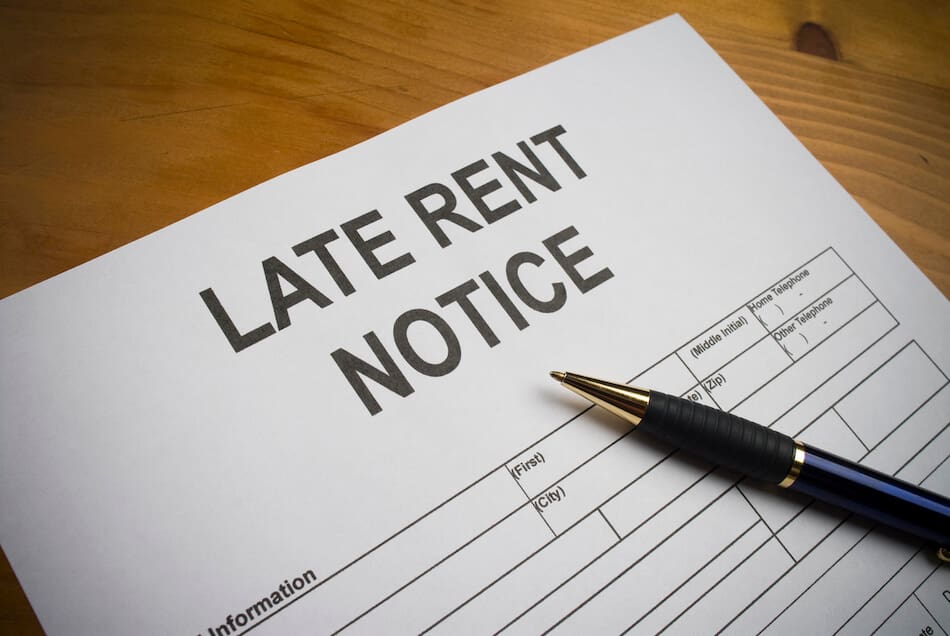Rent payments are the lifeblood of any rental property business, but late payments can cause significant stress for landlords and tenants alike. While some delays are due to negligence or avoidable excuses, many are rooted in real-life challenges tenants face.
For landlords, understanding the common acceptable reasons for late rent payments can help reduce conflict, prevent eviction proceedings, and maintain healthier tenant relationships.
This article explores the top 10 acceptable reasons tenants may pay rent late, the risks involved for landlords, and how to handle these situations with care and professionalism.
Quick Summary
Late rent payments pose challenges and risks to landlords managing rental properties, but many tenants face genuine hardships beyond mere excuses. This article highlights the top 10 acceptable reasons tenants pay rent late and what landlords should know about each:
-
Job Loss or Reduced Income: Sudden changes in employment impact tenants’ ability to pay rent, making landlord support critical.
-
Medical Emergencies or Hospitalization: Unexpected health costs and hospitalization often delay payments; documentation can help landlords understand the situation.
-
Natural Disasters: Environmental events disrupt tenant lives and finances; flexible payment options reduce eviction risks.
-
Family Emergencies and Bereavement: Emotional and financial strain from family loss or illness can cause late rent.
-
Delays in Government Assistance: Bureaucratic hold-ups with social programs often delay tenant funds.
-
Unexpected Repairs or Major Expenses: Urgent repairs and expenses outside rent obligations impact tenant budgets.
-
Bank Errors or Payment Processing Mistakes: Technical issues with payment systems can delay rent payment unintentionally.
-
Move-In Delays or Relocation Costs: Costs and timing related to moving homes may cause rent delays.
-
Communication and Notice: Lack of timely tenant communication can escalate payment issues.
-
Legal Considerations and Tenant Rights: Awareness of eviction laws and notice requirements protects landlords and tenants.
By recognizing these reasons and responding with understanding, clear policies, and proper documentation, landlords can mitigate risks and maintain productive tenant relationships.
Why Understanding Late Rent Payments Matters
Late payments can lead to cash flow issues and increased risk for landlords. However, every tenant has a story, and often late rent isn’t just about excuses or carelessness. By recognizing legitimate causes – supported by proper documentation – landlords can make informed decisions, reducing unnecessary eviction proceedings and protecting their properties.
1. Job Loss or Reduced Income
Job loss or a reduction in income is a major cause of late rent payments. Tenants suddenly find their financial support compromised, struggling to cover rent amid other bills.
What Landlords Should Know
-
Tenants experiencing job loss may still be actively seeking employment.
-
In addition to job loss, reduced hours or pay cuts can impact the ability to pay rent.
-
Landlords who offer support, such as payment plans, can help tenants avoid eviction.
-
Proper documentation of income loss from tenants can clarify the situation.
2. Medical Emergencies or Hospitalization
Unexpected hospitalization or medical emergencies often lead to significant expenses and financial strain, causing tenants to prioritize health costs over rent.
What Landlords Should Know
-
Hospitalization can result in urgent bills that surpass tenants’ savings.
-
Medical emergencies are unavoidable and often sudden.
-
Offering leniency and requesting supporting documentation can help tenants through difficult times.
-
Compassionate support helps maintain trust and reduces eviction risks.
3. Natural Disasters
Natural disasters such as floods, wildfires, and hurricanes can disrupt tenants’ lives and incomes.
What Landlords Should Know
-
Natural disasters might cause damage to tenants’ property or workplaces.
-
Tenants may require time to recover and await insurance or government assistance.
-
Landlords should consider temporarily waiving late fees and providing flexible payment options.
-
Documentation like disaster relief notices or insurance claims may justify late payments.
4. Family Emergencies and Bereavement
Events like the illness or death of a family member can lead to emotional and financial distress, often resulting in late rent payments.
What Landlords Should Know
-
Bereavement can disrupt a tenant’s routine and financial priorities.
-
Tenants may face unexpected travel costs or caregiving expenses.
-
Allowing short grace periods or payment extensions shows support and builds goodwill.
-
Communication from tenants explaining the situation can help landlords understand the context.
5. Delays in Government Assistance
Many tenants rely on government programs such as unemployment benefits, housing vouchers, or social security. Delays in these payments can cause rent to be late.
What Landlords Should Know
-
Bureaucratic delays are often out of tenants’ control.
-
Late government assistance can create financial gaps.
-
Landlords should request documentation proving assistance delays.
-
Understanding this can prevent unnecessary eviction notices and proceedings.
6. Unexpected Repairs or Major Expenses
Tenants may face unexpected expenses such as car repairs, appliance replacement, or other major financial hits that limit their ability to pay rent promptly.
What Landlords Should Know
-
These unplanned costs can strain tenant budgets significantly.
-
Tenants might prioritize critical repairs over rent in the short term.
-
Open dialogue about financial struggles can allow landlords to arrange payment plans.
7. Bank Errors or Issues with Payment Processing
Mistakes by banks or payment services can result in rent payments not going through on time.
What Landlords Should Know
-
Electronic payments can fail due to technical errors.
-
Tenants may be unaware that payments did not process successfully.
-
Confirm payment status with tenants and banks before issuing late notices.
-
Offering alternative payment methods can resolve these issues quickly.
8. Move-In Delays or Relocation Costs
Tenants relocating to a new home often face overlapping rent obligations or unexpected relocation expenses that delay their rent payments.
What Landlords Should Know
-
Relocation costs such as deposits, moving services, or temporary housing strain tenant finances.
-
Tenants might pay rent late during the transition period.
-
Flexibility during move-in delays fosters long-term tenant satisfaction and retention.
9. Communication and Notice to Landlord
Late payments sometimes stem from tenants’ failure to communicate financial issues or provide timely notices.
What Landlords Should Know
-
Encouraging tenants to notify landlords early of payment difficulties prevents misunderstandings.
-
Clear communication policies should be outlined in lease agreements.
-
Documentation of notices and conversations helps protect both parties.
-
Avoid jumping to conclusions about excuses before discussing the situation with tenants.
10. Legal Considerations and Tenant Rights
Landlords must be aware of laws governing rent payments, grace periods, and eviction proceedings.
What Landlords Should Know
-
Tenant rights and eviction laws vary widely by location.
-
Some jurisdictions require landlords to provide notices before late fees or eviction actions.
-
Understanding local regulations protects landlords from legal mistakes.
-
Ensuring notices and documentation comply with laws is essential before pursuing eviction.
Managing Late Rent Payments: Best Practices for Landlords
-
Create clear policies on rent due dates, late fees, and acceptable excuses.
-
Maintain open communication channels, encouraging tenants to seek help early.
-
Request supporting documentation when appropriate to verify legitimate reasons.
-
Be flexible with payment plans or temporary rent adjustments during hardships.
-
Keep thorough records of all notices, communications, and agreements.
-
Stay updated on local tenant laws to avoid legal missteps.












